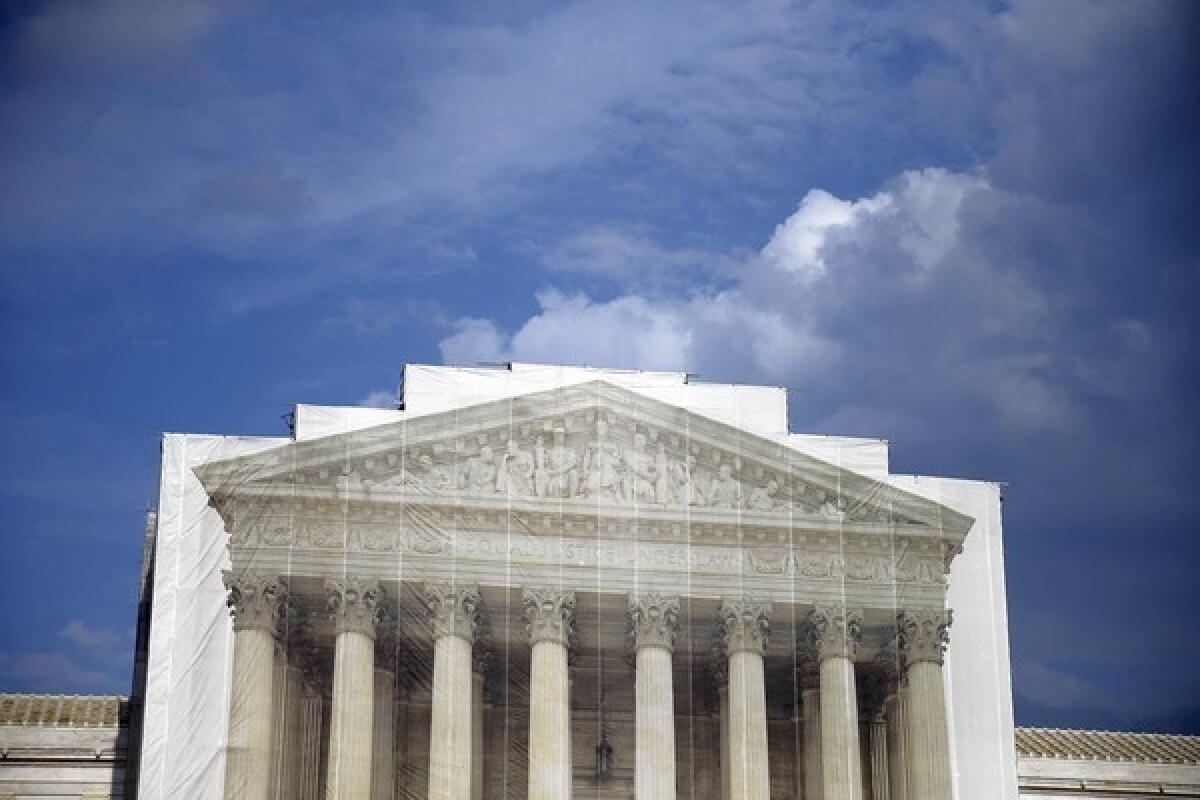Supreme Court takes on ‘Raging Bull’ copyright case

WASHINGTON — The U.S. Supreme Court, preparing for the beginning of its new term, announced Tuesday that it had agreed to decide eight new cases, including a copyright dispute over the 1980 Oscar-winning boxing film “Raging Bull,” and a case that will consider what constitutes a crime of violence that could prohibit someone from owning a gun.
The court, which has said it will proceed normally despite the government shutdown, is scheduled to hear the first round of arguments next week.
Justices met behind closed doors Monday to sift through more than 2,000 appeals that piled up over the summer. They chose eight cases to be heard for a full argument in January.
The court took no action on the most closely watched disputes, including challenges to the Obama administration’s greenhouse gas regulations.
The copyright dispute turns on whether Paula Petrella, whose father, Frank Petrella, wrote the book and screenplay for “Raging Bull,” waited too long to sue over the renewal of his copyright. In 1976, Frank Petrella and boxer Jake LaMotta assigned the rights to their book and screenplay to Chartoff-Winkler Productions. In 1978, United Artists and MGM acquired the motion picture rights.
But in 2009, Paula Petrella sued MGM for alleged copyright infringement, saying she had renewed the copyright to her father’s work after its initial 28-year term expired in 1991. (Frank Petrella died in 1981.) A federal judge in Los Angeles and the U.S. 9th Circuit Court of Appeals rejected her claim on the grounds that she had waited too long to sue.
But Judge William A. Fletcher said that the 9th Circuit had a reputation for protecting the Hollywood studios. “Our circuit is the most hostile to copyright owners of all the circuits,” he wrote.
University of Pennsylvania law professor Stephanos Bibas appealed on behalf of Petrella and cited Fletcher’s comment. He argued that the 9th Circuit had adopted a statute of limitations for copyright claims that was not in the law. The Supreme Court voted to hear the case of Petrella vs. MGM to resolve the dispute.
In the gun case, the court will decide whether a person convicted of domestic violence can be prohibited from owning firearms even if there was no proof that he or she used actual physical force against a spouse or family member.
Federal law forbids gun ownership by anyone convicted of “a misdemeanor crime of violence,” but judges are split on how to define that crime. James Castleman, a Tennessee man, pleaded guilty in 2001 to a domestic violence charge involving the mother of his child and was put on probation.
When he was arrested in 2009 on gun charges, he contested the federal indictment on the grounds that he had not been convicted of using physical force. A judge and the U.S. 6th Circuit Court of Appeals agreed, saying the earlier guilty plea did not count as a crime of domestic violence because he had not been shown to have used physical force.
U.S. Solicitor Gen. Donald Verrilli Jr. appealed the case of United States vs. Castleman. He argued that this interpretation, if allowed to stand, would weaken a law designed to keep guns out of the hands of those who are dangerous to their families.
More to Read
Start your day right
Sign up for Essential California for news, features and recommendations from the L.A. Times and beyond in your inbox six days a week.
You may occasionally receive promotional content from the Los Angeles Times.







